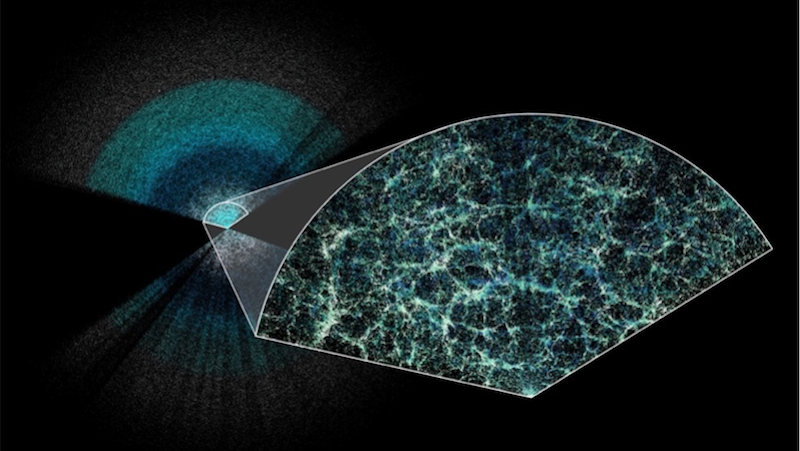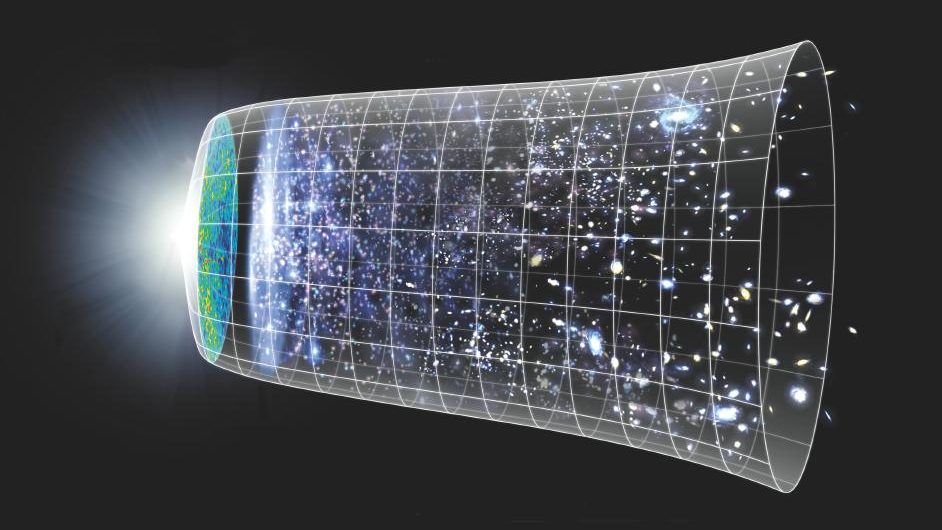Sign up for the Smarter Faster newsletter
A weekly newsletter featuring the biggest ideas from the smartest people
The universe is inflating like a cosmic balloon. Lee Cronin, Regius Chair of Chemistry at the University of Glasgow, has a new theory about why.
Many scientists believe cosmic inflation is occurring as a result of the Big Bang, but Cronin has a different idea. Time, he explains, may be expanding alongside space. The space we see could be local, expanding from the Big Bang, generating life, and eventually ceasing to have meaning when causation ends.
This suggests that time and life may have a deeper connection to one another. Life could be seen as the amount of selection happening per unit volume, with selection being what keeps the universe inflated. Where there’s interaction, there’s selection, and, perhaps, this could explain the expansion.
We don’t fully understand what drives the universe’s expansion or what time truly is. Testing this idea, even if it’s wrong, could lead to ground-breaking discoveries about the nature of time, space, and the forces that shape our universe.
Lee Cronin: Is the Universe kept inflated because of selection? I mean, that's a wild speculation. I'm gonna say it's wild, but it's worth thinking about.
So, the Universe has been expanding ever since the Big Bang. That's at least one theory, that we had this kind of infinitely dense start to the Universe. And there's also a theory that, you know, maybe the Universe only gets so far, and then gravity will overcome it, and it drags back. But in the last few years, physicists have seen that not only is expansion still happening, but it's getting faster.
What is the Universe expanding into? Nothing. I think that's probably the wrong way to look at it, to say there is time, and time is literally inflating like a balloon. And that's just the Universe we are confronted with. It doesn't make any sense to talk about other times. There is just our time. There might have been time forever, right? The space that we see might be local.
I mean, one way of looking at it could be you have Big Bang, the Universe expands, and then Universe generates life, and there's all this stuff going on. And then at the end of the Universe, when all the causation in the Universe is finished, space ceases to have any meaning, and you're back at the Big Bang again. Physicists would argue that that is not correct. It's kind of imprecise, not, you know, experimentally testable.
But I do like the idea that novelty generation is somehow causing the Universe to expand in some way. And I'd love to think about if I wasn't wildly wrong, how might we go about testing it. We don't really know what is driving the Universe expansion, and we don't really know what time is. There is an actual fundamental principle in physics that's not time reversible. And so if time is not reversible, and time is fundamental, then how does selection through matter, through life, expand the Universe? And I think we have to revisit it.
And so if all life in the Universe stopped, would the Universe get smaller? That's a really interesting question, but I think an even more interesting question is to say, "Look, time and life are connected, and of course, the Universe is alive everywhere, but life is just merely the amount of selection going on per unit volume." And so we shouldn't obsess about life on its own. It's about any selection, right? And that selection at its most primal meaning is what is keeping the Universe inflated.
And because where there's stuff interacting, you always have selection, that's why the Universe is expanding, and that could be another way of looking at it. Again, I'm not 100% comfortable saying that, but it's fun, and I'm sure that people will have many interpretations, if not outright thinking that what I'm saying is nonsensical—which is fine.






